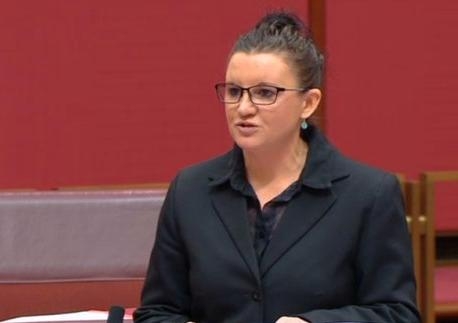Don't expect Senate defectors to take the honourable course
Party 'rats' have no mandate from voters and should give up their seats rather than turn independent, writes George Williams.
Party 'rats' have no mandate from voters and should give up their seats rather than turn independent, writes George Williams.

OPINION: Recent months have seen two significant defections in the Senate. Victorian John Madigan, the Democratic Labour Party's first federal member since 1974, left the party in September to become an independent. He was followed last week by Tasmania's Jacqui Lambie, who also became an independent after leaving the Palmer United Party.
The response of their parties has been to threaten legal action. Clive Palmer of course has the means to carry this out. He is a serial litigator with deep pockets. However, it is not clear what the basis of any case brought by Palmer would be, or indeed whether he has any plausible legal argument at all.
The DLP has already announced its High Court challenge. According to National President Paul Funnell: "We are challenging the validity of former Senator Madigan to continue to sit in the Senate, because we believe the seat is vacant". This argument relies on section 15 of the Constitution. It says that when a senator vacates their seat, the state Parliament must appoint a replacement from the party that had endorsed the senator at the time of his or her election.
This argument has little to no prospect of success. Section 15 only applies "if the place of a senator becomes vacant before the expiration of his term of service". This obviously occurs if a senator dies or resigns their place in the Senate. It stretches the bounds of plausibility to suggest that their seat becomes "vacant" if they merely resign their party membership.
The weakness of the DLP's position is presumably why it has talked of a High Court challenge, but to date has not actually filed one. In all likelihood, it would suffer an embarrassing loss, and face the prospect of paying Madigan many thousands of dollars in costs.
What this shows is that the law provides no remedy to a political party when one of its senators goes rogue. This should come as no surprise. Many senators have left their party to turn independent. Meg Lees did so in 2002 when she left the Democrats, as did Mal Colston when he left Labor in 1996. No legal action was brought against them.
The only remedy was personal and political. Defectors usually find themselves the subject of long-running abuse, such as in the case of Colston who ever after was viewed as a Labor "rat". Former party members also feel free to make use of whatever dirty secrets or rumours they know about their former colleague. In Colston's case, this led him to face multiple charges of fraud. Palmer is already following a similar course. He has cast Lambie as a dishonest traitor, and suggested that she rorted the welfare system.
Defections are not just an issue for political parties. They also reveal a problem with how the Senate works. In choosing senators, people either indicate a preference for a political party or vote "below the line" by numbering each individual candidate. Over 95% of voters take the first option, meaning that the selection is overwhelmingly made on the basis of party preference.
This shows how the Senate, although created to be the state's house, is in reality the house of Australia's political parties. Indeed, the only genuine independent currently in the Senate is Nick Xenophon. Unlike every other senator, he won his seat on the basis of his own merit and profile.
The issue is not just that senators are chosen to represent a party. They are also elected for terms that are twice the length of the House of Representatives. In the case of Lambie, barring a double dissolution of both Houses, she will be a free agent in the Senate until her term ends on June 30, 2020. During this time, she will wield extraordinary influence over the government's agenda.
None of this suggests that Madigan and Lambie should have stayed with their parties. In each case, irreconcilable differences meant that a split was inevitable. However, instead of turning independent, they should have resigned their seats.
Madigan and Lambie are only in the Senate because of the efforts and finances of the parties they represented. They have no mandate from voters to sit as independent members. It is their right to leave their parties, and to pursue an independent course. However, if they wish to do so, they should resign and stand as independents at the next election.
Unfortunately, taking the honourable course is not commonplace among Senate defectors. Cheryl Kernot resigned her Senate seat in 1997 when she left the Democrats to join Labor. However, her conduct was exceptional, and other defectors have been all too happy to retain their seats, and the perks and power that go with them.
George Williams is the Anthony Mason Professor of Law at UNSW.
This opinion piece was first published in the Sydney Morning Herald.